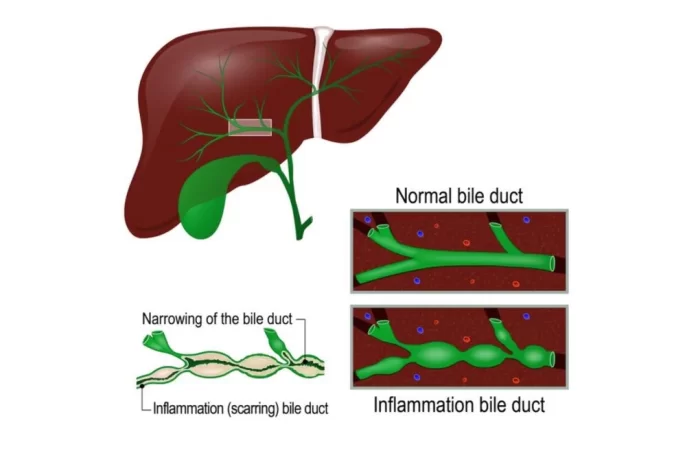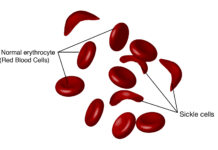Caroli Disease is a rare congenital disorder affecting the bile ducts, causing them to become enlarged and potentially leading to complications such as infections, liver issues, or the formation of gallstones. It is part of a group of conditions known as “congenital bile duct dilatation disorders.”
There are two forms of the disease:
- Simple Caroli Disease: Involves the dilation (widening) of the large bile ducts within the liver.
- Caroli Syndrome: Involves bile duct dilation along with congenital hepatic fibrosis (scarring of liver tissue). This form is more severe and can lead to liver problems.
Symptoms:
The symptoms can vary depending on the extent of the disease and complications but may include:
- Abdominal pain (especially in the upper right side)
- Fever (due to cholangitis or bile duct infections)
- Jaundice (yellowing of the skin and eyes due to bile flow obstruction)
- Enlarged liver or spleen
- Gallstones
- Portal hypertension (increased blood pressure in the veins of the liver)
- Cirrhosis (advanced scarring of the liver)
- Hematemesis (vomiting blood) in advanced cases of liver disease
- Kidney issues in Caroli syndrome, as some patients may have polycystic kidney disease (PKD)
Causes:
Caroli disease is believed to be genetic in nature, often inherited in an autosomal recessive pattern (both parents carry the mutated gene but are not affected). It results from developmental issues in the formation of the bile ducts during fetal growth. Some cases are also sporadic, with no clear family history.
Treatment:
The treatment of Caroli disease depends on the severity of the symptoms and the complications:
- Medical management:
- Antibiotics to treat or prevent infections of the bile ducts (cholangitis).
- Ursodeoxycholic acid to improve bile flow and reduce stone formation.
- Surgical interventions:
- Endoscopic procedures to drain bile duct stones or dilated bile ducts.
- Partial liver resection (removal of a portion of the liver) in cases where only part of the liver is affected.
- Liver transplantation may be considered in advanced cases, especially in patients with cirrhosis or liver failure.
- Other interventions:
- ERCP (Endoscopic Retrograde Cholangiopancreatography): A procedure used to diagnose and sometimes treat bile duct problems by inserting a small camera and tools through the stomach into the bile ducts.
Prevention:
Since Caroli disease is congenital, it cannot be prevented. However, managing the condition can help prevent complications:
- Regular medical check-ups to monitor liver function and bile ducts.
- Prompt treatment of infections and prevention of cholangitis through antibiotics.
- Avoiding risk factors such as alcohol or drugs that can harm the liver.
Genetic counseling may be recommended for families with a history of Caroli disease.

































